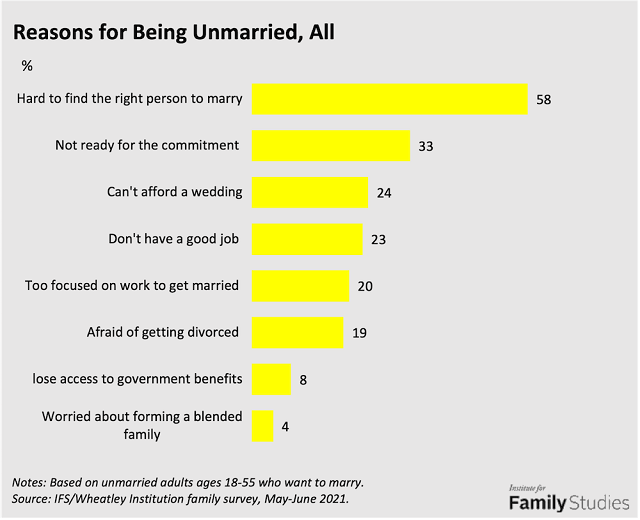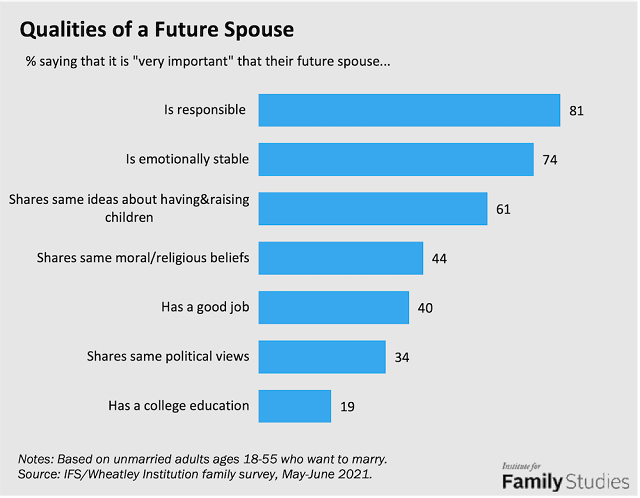While many churches seem to neglect them, the majority of millennials in the U.S. are single. And although money certainly plays a role in that phenomenon, it’s not the main reason so many younger Americans are without significant others.
A new survey from the Institute for Family Studies and the Wheatley Institute found that 58% of unmarried Americans between the ages of 18 and 55 are single because “it is hard to find the right person to marry.” Additionally, 33% of respondents said they are “not ready for the commitment.”
However, only 24% said it is because they “can’t afford a wedding” and just 23% blamed their prolonged singleness on the fact that they “don’t have a good job.”
The trends follow the same trajectory for lower-income Americans, too. More than half (54%) of those whose income falls below $50,000 a year said it is difficult for them to find the right person to marry. Nearly half (49%) of those whose income is $100,000 or more per year agreed.
Interestingly, men and women largely agreed on their reasons for remaining single, according to the study:
Unmarried men and women are largely in agreement about the reasons why they remain single. The areas where we see a gender difference are related to income or finances. Men are more likely than women to cite “can’t afford a wedding” (27% vs. 21%) as well as “don’t have a good job” (29% vs. 17%) as reasons why they are unmarried.
All of this, of course, begs the question: What does it mean for someone to be the “right person” to marry?
According to the IFS study, 81% of respondents said it is “very important” their future spouse “is responsible,” 74% said “is emotionally stable,” 61% said “shares same ideas about having [and] raising children,” and 44% said “shares same moral [and] religious beliefs.”
Broken down along higher and lower incomes, responses remained largely unchanged.
“Overall, we see striking similarities between lower-income and higher-income singles in terms of what they look for in a future spouse: inner qualities such as being responsible and emotionally stable top job and education on the list of desirable traits,” explained Wendy Wang, director of research at IFS. “The top two reasons for not marrying have little to do with money, according to both lower-income and higher-income adults on the marriage market today.”
It is worth noting, though, that 4% of lower-income and 11% of higher-income earners who would like to get married indicated they are remaining single because marriage would mean a loss of “access to government benefits,” such as Medicaid, child care, and food stamps.
LISTEN TO TODAY’S PODCAST AND SUBSCRIBE:
Higher-income single Americans, on the other hand, are more likely than their lower-income counterparts (33% vs. 17%) to say they are “too focused on work” to pursue marriage.
It’s worth noting the survey used the terms “single” and “unmarried” interchangeably. While some of the unmarried adults in the study are living with partners, the data also represents adults who have never been married, or who are divorced or widowed.
***As the number of voices facing big-tech censorship continues to grow, please sign up for Faithwire’s daily newsletter and download the CBN News app, developed by our parent company, to stay up-to-date with the latest news from a distinctly Christian perspective.***





